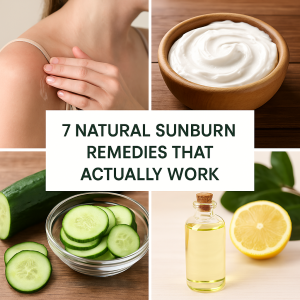1. Keep Windows Closed on High-Pollen Days
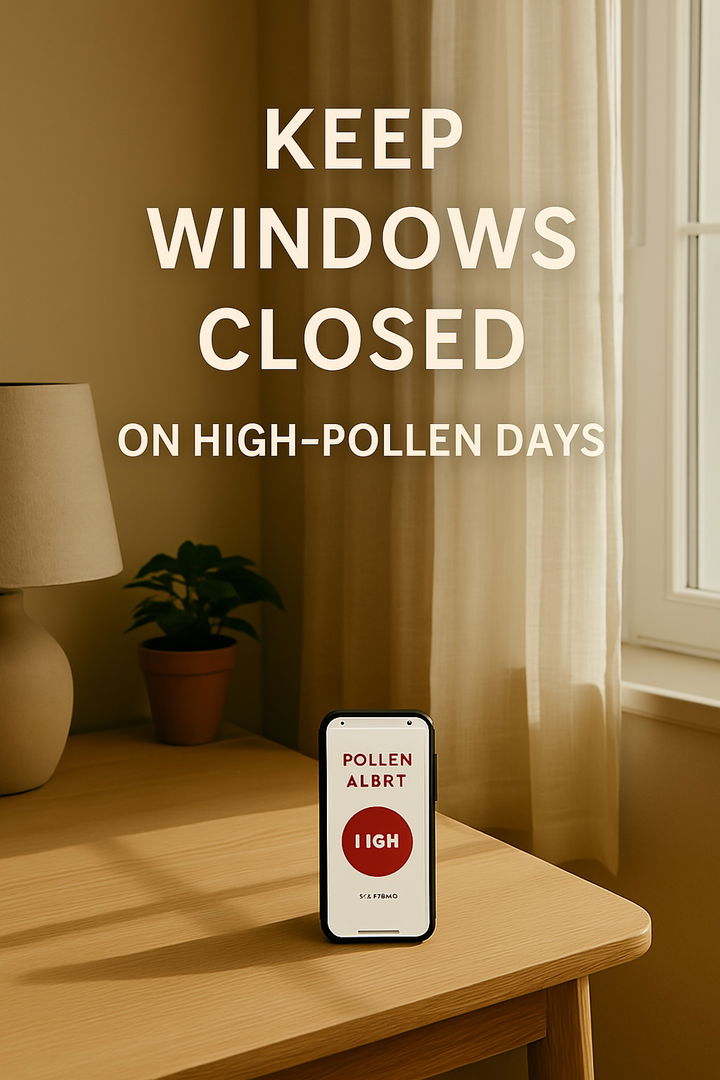
Pollen levels can soar in the summer, especially in the morning or on windy days. Keep windows shut and use an air purifier to maintain clean, allergen-free air indoors. This simple step creates a safe, soothing space where you can breathe easier and avoid triggering allergy symptoms. Protect your space from invisible irritants—your nose, lungs, and sinuses will thank you for it. Let the sunlight in, but keep the pollen out.
2. Rinse Off After Being Outdoors

After spending time outside, pollen can cling to your skin, hair, and clothes. Rinsing off or taking a quick shower helps remove allergens and prevents them from spreading around your home. This habit is especially helpful before bed so you’re not sleeping with pollen on your pillow. A refreshing rinse doesn’t just feel good—it also helps minimize irritation, sneezing, and itchy skin caused by lingering outdoor allergens.
3. Use a Saline Nasal Rinse
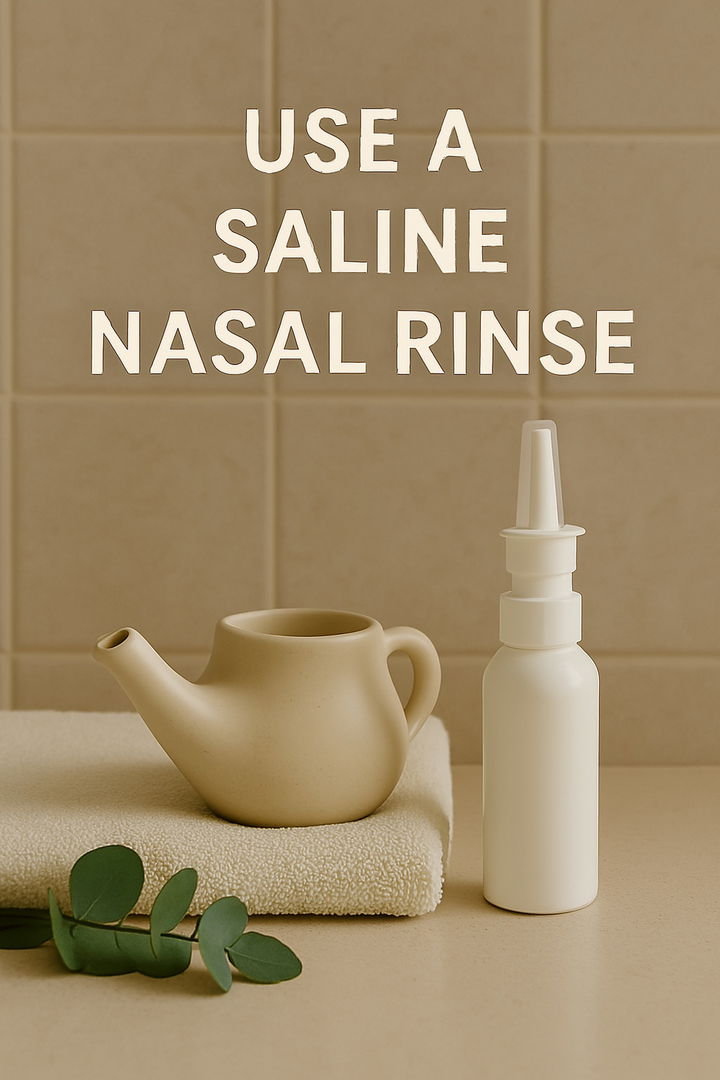
A natural saline rinse or neti pot is a game changer for clearing pollen and relieving nasal congestion. These gentle rinses flush out allergens, moisturize your nasal passages, and reduce inflammation—perfect for soothing that stuffy, itchy summer nose. Just make sure you use sterile, filtered water. It’s a simple, effective, and drug-free way to breathe freely and stay ahead of your allergy symptoms all season long.
4. Wash Bedding and Clothes Frequently
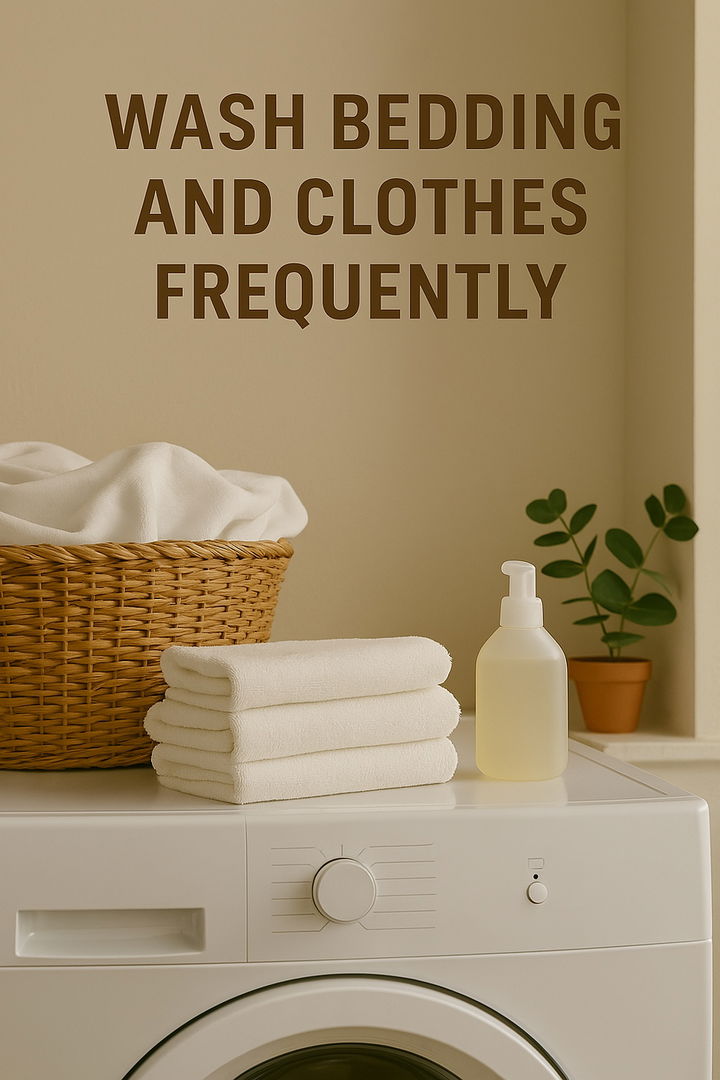
Your bedding and clothes can collect dust, pollen, and other allergens throughout the day. Washing them regularly—especially pillowcases and sheets—keeps your sleep environment clean and your allergies under control. Choose hot water to kill allergens and avoid fabric softeners with synthetic fragrances. It’s a small task with a big impact, helping you sleep better and wake up without a scratchy throat, runny nose, or itchy eyes.
5. Try Local Honey
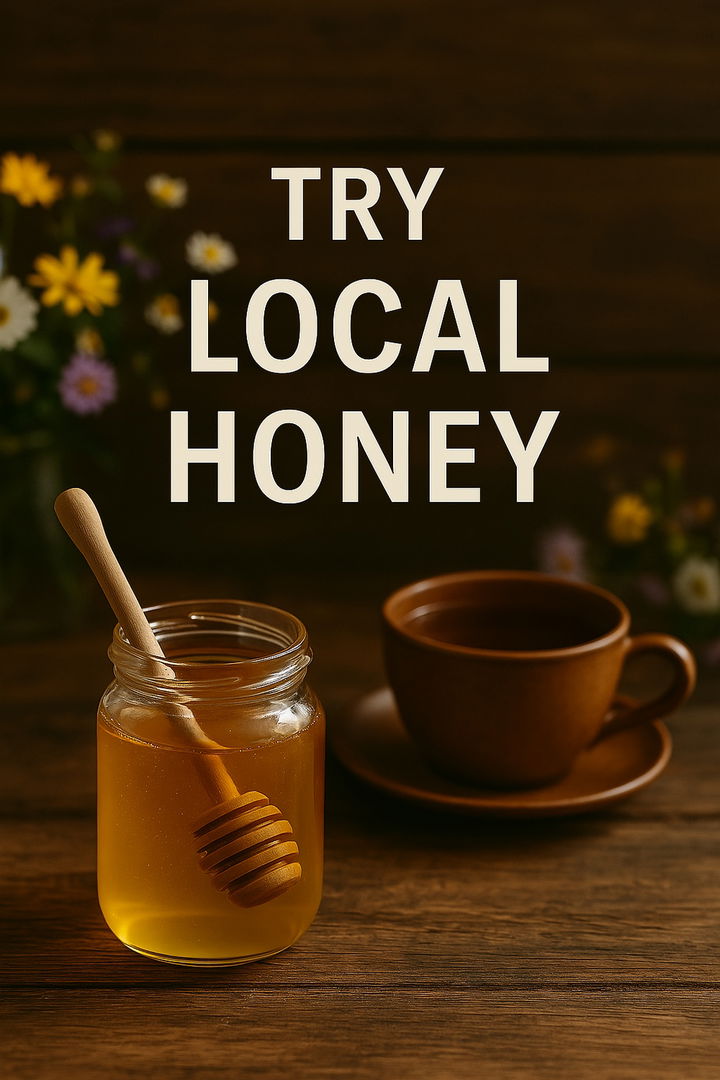
Some people find that eating local raw honey may help build tolerance to pollen in their area. While science is mixed, many swear by this natural remedy. Stir a spoonful into your tea or drizzle it over breakfast for a sweet, soothing way to potentially reduce allergy flare-ups. Even if it doesn’t “cure” your allergies, local honey supports your immune system—and tastes delicious doing it.
6. Eat Anti-Inflammatory Foods

What you eat can impact how your body responds to allergens. Incorporate anti-inflammatory foods like pineapple (rich in bromelain), ginger, turmeric, leafy greens, and omega-3-rich nuts and seeds to reduce allergy-related inflammation. These foods calm your immune system, ease congestion, and help reduce sneezing, itching, and swelling. Nourish your body from the inside out for stronger, more natural allergy defense this summer.
7. Use a HEPA Air Purifier
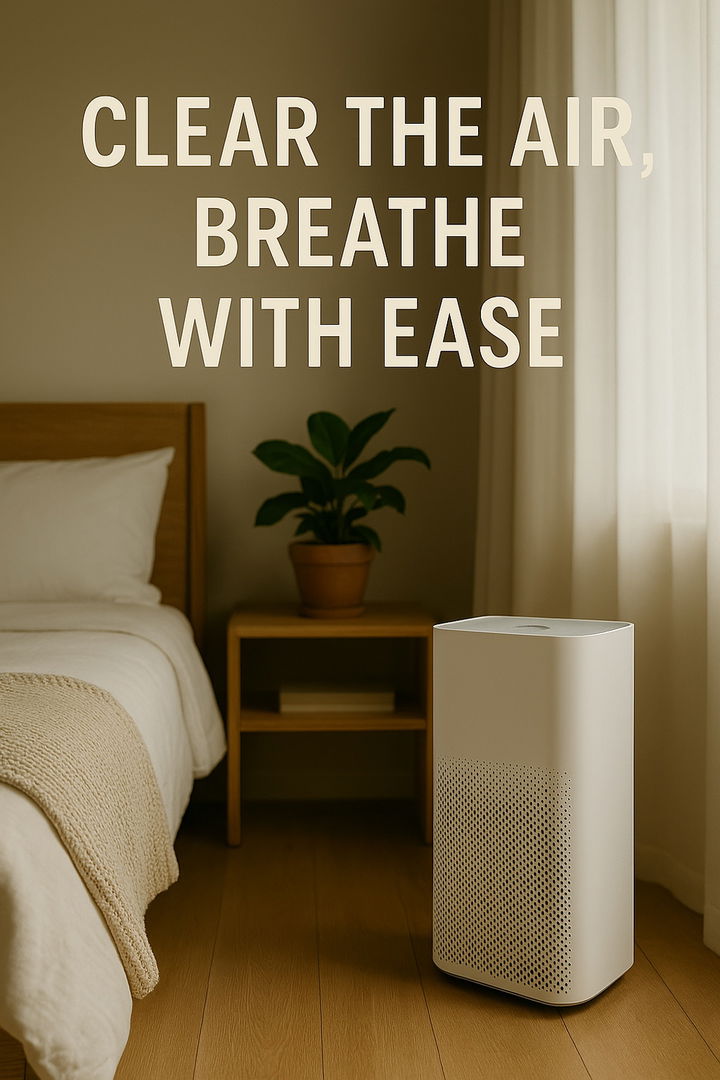
Allergens don’t just stay outside—they sneak indoors too. A HEPA air purifier traps pollen, dust mites, pet dander, and other particles, creating a cleaner, fresher breathing space. Place one in your bedroom or living room to help reduce allergy symptoms, especially at night. It’s an investment in comfort, clear sinuses, and restful sleep. Breathe easy and let your air work for you.
8. Take Natural Antihistamines
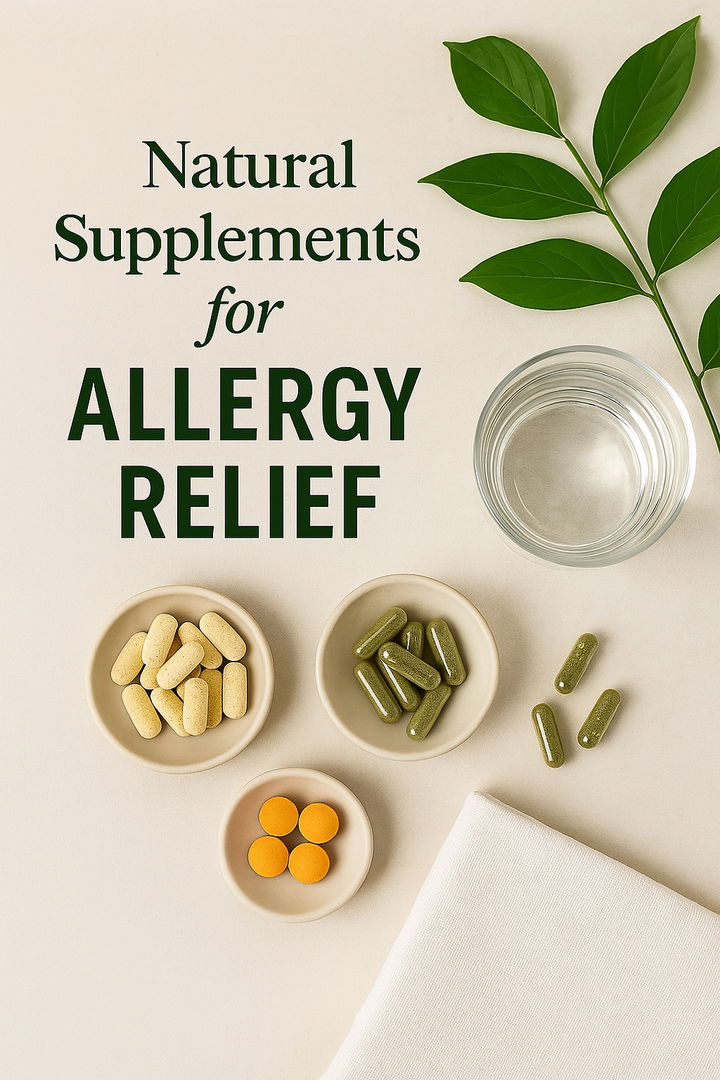
Natural antihistamines like quercetin, vitamin C, and stinging nettle may help reduce histamine reactions from seasonal allergens. These plant-based remedies can support your body’s response to pollen, easing symptoms like sneezing, itching, and watery eyes. Always consult your healthcare provider before starting new supplements, but these gentle alternatives are worth exploring—especially if you want a more natural approach to allergy relief.
9. Wear Sunglasses Outdoors
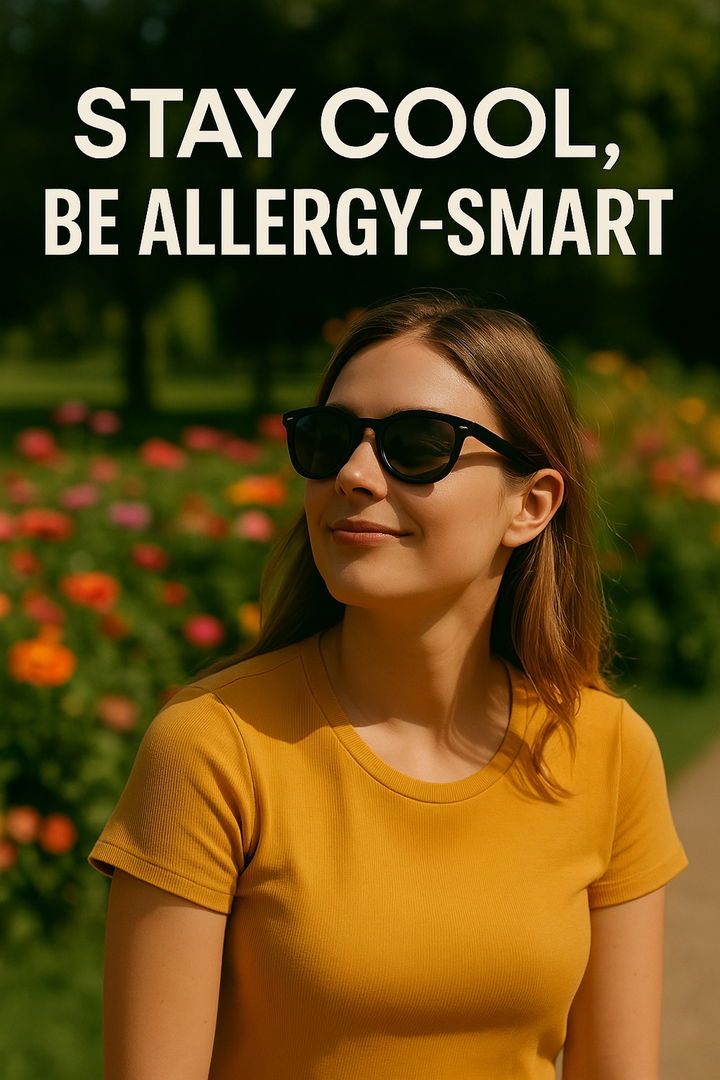
Your eyes are sensitive to pollen, and wearing sunglasses creates a protective barrier when you’re outdoors. This small change can prevent itching, redness, and watering caused by allergens in the air. Choose wraparound styles for the best coverage and pair them with a hat for extra protection. Staying stylish and allergy-aware has never been easier—your eyes will feel the difference.


